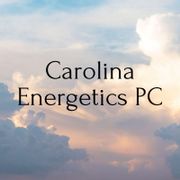What Are the 5 Stages of Addiction?

Are you concerned about a loved one’s possible addiction to drugs or alcohol? It can be hard to know when enjoyment has crossed the line into substance abuse. Learn more about the five stages of addiction in the guide below so you’ll know when help is needed.
Understanding the Stages of Addiction
1. There’s a Pattern
The type of situation and frequency of use will become predictable and steadily increase. Beyond the first encounter with the drug, the person returns to the substance to get the same positive feelings. For some drugs, such as heroin, the user will begin to exhibit physical signs, such as track marks or extreme weight loss. For other types, such as alcohol or prescription drugs, it may take a while for the effects to be perceivable.
2. Risky Use
 Using more than one drug at a time—for example, cocaine mixed with meth—is dangerous, as it increases the risk of a harmful or fatal overdose. Drinking and driving and using substances while at work are also examples of risky use. When safety is blatantly disregarded, it’s a signal that an addiction is forming.
Using more than one drug at a time—for example, cocaine mixed with meth—is dangerous, as it increases the risk of a harmful or fatal overdose. Drinking and driving and using substances while at work are also examples of risky use. When safety is blatantly disregarded, it’s a signal that an addiction is forming.
3. Tolerance Increases
Over time, the person will need more of the substance to obtain the same desired results. This is because the brain and body have adjusted to the drug. They may begin mixing other drugs into their use pattern, or they may not be able to go a day without using.
4. Dependence
At this stage, users will have a diagnosable substance use disorder. Tolerance and frequency have increased, and if they try to cut back or miss a fix, they will get withdrawal symptoms, such as weight loss, anxiety, depression, physical illness, insomnia, and hallucinations.
5. Disorder
The advanced stages of substance abuse are characterized by behavioral problems and impacted family relationships. Young adults may drop out of school, lie, steal, or engage in risky behaviors. Adults can experience job loss and the dissolution of important relationships. In extreme cases, substance abusers can become homeless, turn to prostitution or selling drugs themselves, or engage in other criminal activities. Finally, the body may show physical manifestations of disease.
If a loved one is struggling with opioid addiction, turn to the compassionate professionals at Carolina Energetics. They serve Charlotte, Hickory, and Salisbury, NC, and provide a safe, non-judgmental treatment center for those looking to quit opioid use. The team also recognizes the need for substance abusers to reconnect with family and community. Call (704) 762-9630 to schedule an appointment, or go to the website to learn more about their services.
About the Business
Have a question? Ask the experts!
Send your question

